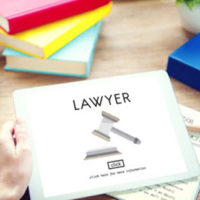Unlicensed Practice of Law

The Unlicensed Practice of Law (UPL) program was established by the Supreme Court of Florida to protect the public against harm caused by unlicensed individuals practicing law.
Consumer Information: The Supreme Court of Florida has given The Florida Bar the duty to investigate and take action against the unlicensed practice of law.
Limited Appearance in Florida: Attorneys licensed in another state may represent someone in a court proceeding in Florida with the court’s permission and in arbitration proceedings in Florida. Certain requirements must be met in order to appear and copies of the motion or verified statement must be filed with The Florida Bar.
Formal Advisory Opinions: Rule 10-9.1 of the Rules Regulating The Florida Bar allows the Standing Committee on Unlicensed Practice of Law to issue proposed formal advisory opinions concerning activities which may constitute the unlicensed practice of law.
Authorized House Counsel: Authorized House Counsel (AHC) are attorneys certified by The Supreme Court of Florida to perform limited legal services while working for a business organization.
Foreign Legal Consultant: The Florida Bar’s Foreign Legal Consultancy Rule allows a foreign attorney to advise clients on the laws of the country under which the attorney is admitted to practice.
Military Spouse Rule: Chapter 21 establishes a process whereby the spouse of a service member who is licensed to practice law in another jurisdiction may obtain authorization to practice law in Florida for up to five years without taking the Florida Bar Examination while the service member is assigned to a duty location in the state.
Consequences of Unlicensed Practice of Law: According to the Florida Bar’s consumer information: If the local Unlicensed Practice of Law committee determines that the conduct does not involve the unlicensed practice of law, that it is an isolated incident which will not be repeated and will not result in a likelihood of future public harm, that the individual is no longer in Florida or that the complaining party does not wish to cooperate with the investigation, the local Unlicensed Practice of Law committee may close the case.
If the local Unlicensed Practice of Law committee determines that the individual did engage in the unlicensed practice of law and that the activity is likely to continue, the committee may request that the individual sign a cease and desist affidavit. Although the nonlawyer does not have to acknowledge that they engaged in the conduct in the affidavit, the nonlawyer will acknowledge that the conduct is the unlicensed practice of law and will agree to refrain from engaging in the conduct in the future.
If the conduct involves the unlicensed practice of law and the individual will not sign a cease and desist affidavit, the local Unlicensed Practice of Law committee can recommend prosecution. Prosecution is before the Supreme Court of Florida and seeks a civil injunction which orders the nonlawyer to stop engaging in Unlicensed Practice of Law. The Bar can also bring an action before the Supreme Court of Florida for indirect criminal contempt.
WE HIGHLY RECOMMEND THAT WHENEVER A SPECIFIC ISSUE ARISES, YOU CONSULT AN ATTORNEY; CALL DANIEL M. COPELAND, ATTORNEY AT LAW, P.A. AT 904-482-0616 OR E-MAIL AT scopeland@dmcopelandlaw.com
